Some common household items — such as white vinegar, Borax, essential oils, and used coffee grounds — can help control ants, as can conventional pesticides. Be mindful that a few of these approaches may be unsafe around children or pets.
:max_bytes(150000):strip_icc()/get-rid-of-ants-cheaply-and-naturally-1388157_final-879d70d567f042dfa3c213170b45f218.png)
The National Wildlife Federation reports there are over 12,000 ant species worldwide. Most of these species pose no direct threat to humans.
That said, ants can carry bacteria and potentially spread infection. For instance, research has shown Monomorium ants may harbor pathogenic bacteria, which can be hazardous to people.
Continue reading to discover safe ways to kill and repel ants.
20 natural ways to eliminate and repel ants
Below are effective natural strategies to kill or deter ants using materials found at home or in local stores.
1. Borax (sodium tetraborate)
Borax, also known as sodium tetraborate, is a white powder commonly used for cleaning, as an emulsifier, and as an insect control agent.
To apply borax:
- Wear protective gloves.
- Mix 1/2 teaspoon borax, 8 teaspoons sugar, and 1 cup warm water.
- Stir until the sugar and borax dissolve.
- Saturate cotton balls and place them in spots where ants are frequently seen.
- Clean any containers used after treatment.
Keep borax out of reach of children and pets because it can be hazardous.
2. Diatomaceous earth (silicon dioxide)
Diatomaceous earth is made of fossilized diatoms and consists largely of silica.
It’s not a chemical poison; it kills ants and other insects by abrading their exoskeletons, causing dehydration. However, it can irritate lungs and skin, so avoid inhaling or prolonged skin contact.
Apply diatomaceous earth according to package instructions or dust it where ants are active.
3. Glass cleaner and liquid detergent
Ants follow pheromone trails that mark food sources. Removing these trails can discourage reentry.
Glass cleaner can help eliminate that scent and keep ants away.
How to use it:
- Combine glass cleaner with a little liquid detergent (for example, dish soap) in a spray bottle.
- Spray areas where ants enter or gather.
- Wipe surfaces, leaving a light residue.
- Repeat as necessary.
If you don’t have glass cleaner, plain soapy water (hand soap or dish detergent) will likely remove ant pheromones as well.
4. Ground black or red pepper
Black pepper or cayenne (red) pepper can repel ants because the scent and particles can be irritating to them.
Dust pepper along baseboards and behind appliances to deter ants.
5. Peppermint
A 2020 study reported that peppermint oil repelled the invasive European red ant, Myrmica rubra.
To use peppermint essential oil as a repellent:
- Mix 10–20 drops of peppermint essential oil with 2 cups of water in a clean spray bottle.
- Spray around baseboards and window frames.
- Let dry and reapply as needed.
Keep peppermint oil away from pets, particularly cats, which can become seriously ill if exposed.
Peppermint oil can often be found at grocery stores or health food shops.
6. Tea tree oil
Tea tree oil has demonstrated antimicrobial activity, suggesting it might help deter ants.
To use:
- Combine 5–10 drops of tea tree oil with 2 cups of water in a clean spray bottle.
- Spray where ants appear, or soak cotton balls and place them around the home.
If the aroma is too sharp, blend tea tree oil with peppermint oil and water. As with other essential oils, keep tea tree oil away from pets.
Tea tree oil is available at many supermarkets, health stores, and online.
7. Lemon eucalyptus oil
Lemon eucalyptus oil is another natural insect repellent. It contains citronellal-type compounds used to repel mosquitoes and has shown insect-repellent properties.
To use lemon eucalyptus oil:
- Saturate cotton balls with undiluted lemon eucalyptus essential oil.
- Place the cotton balls where ants are commonly found.
- Replace them weekly with fresh cotton balls.
Do not ingest lemon eucalyptus oil and store it away from children and pets.
You can typically locate lemon eucalyptus oil at health food stores.
8. Oil of lemon eucalyptus (OLE)
Oil of lemon eucalyptus (OLE) differs from lemon eucalyptus essential oil. OLE is derived from the gum eucalyptus tree and contains p-menthane-3,8-diol (PMD), an effective insect repellent.
The EPA classifies PMD as a biopesticide and regards it as safe when used properly.
OLE can be purchased at hardware or garden stores and online.
9. White vinegar
White vinegar, sold in most grocery stores, is an inexpensive and effective ant deterrent and a natural cleaner.
Use a 1:1 mixture of vinegar and water to wipe down hard surfaces — floors, counters, and other places ants travel. If you see ants directly, spray or wipe them up with the mixture.
Although ants can detect vinegar after it dries, the odor generally dissipates quickly for humans.
10. Boiling water
Pouring boiling water into ant holes near your home will kill many of the ants inside. Ant hills may look small, but colonies extend widely underground.
This approach usually won’t eliminate the whole colony, so treat every nearby ant opening you find.
11. Cornstarch
Cornstarch, available at grocery stores, can smother and kill many ants at once.
Two ways to use cornstarch:
- Pour cornstarch over a cluster of ants and add water on top. The mixture can immobilize and kill the insects for cleanup.
- Cover ants with cornstarch and vacuum them up; then immediately dispose of the sealed vacuum bag outdoors.
12. Cinnamon leaf essential oil
A 2008 study indicated that constituents of cinnamon leaf oil, including trans-cinnamaldehyde, may be effective at killing and repelling ants.
- Saturate cotton balls with undiluted cinnamon leaf essential oil.
- Place them where ants are commonly seen.
- Refresh weekly with newly saturated cotton balls.
Keep cinnamon leaf oil away from pets. It’s often sold at health food stores and online.
13. Neem oil
Neem oil, derived from the neem tree in India, is a natural insecticide.
The National Pesticide Information Center notes neem can:
- reduce insect feeding
- repel insects
- interfere with reproduction
Neem oil works well near plants, especially where aphids or ants appear. Because ants tend to tend aphids for their honeydew, treating aphids with neem can help control both pests.
Many reports suggest full-strength neem oil is more effective than diluted formulations.
Neem oil is available at health food stores and online.
14. Coffee grounds
Used coffee grounds have been shown to repel household ants.
Sprinkle fresh brewed coffee grounds on disposable surfaces (such as index cards) and put them where ants gather — near pet bowls or on windowsills. Grounds lose effectiveness once they dry, so replace them frequently.
15. Boric acid
Boric acid is a poison that can kill certain worker ants, according to a 2023 animal study.
To use boric acid safely:
- Wear gloves.
- Mix 1/2 teaspoon boric acid with 8 teaspoons sugar and 1 cup warm water.
- Stir until dissolved.
- Saturate cotton balls and place in ant-prone areas.
- Wash any containers used after treatment.
You can also make DIY bait stations by mixing boric acid with sweet attractants like maple or corn syrup, spread on disposable surfaces and set where ants travel. Keep boric acid away from children and pets.
Boric acid is sold at hardware and garden stores and online.
16. Lemons
Fresh lemon juice sprayed or wiped on surfaces can disrupt ant pheromone trails and conceal food scents.
Placing lemon peels inside cupboards may also discourage ants from nesting in your kitchen.
17. Check your houseplants
Inspect houseplants for ant activity, which might signal nests beneath the soil. Discard heavily infested plants.
You can deter ants from plant soil by surrounding the potting mix with citrus rinds from lemons or oranges.
18. Keep the outdoors outside
Maintain a tidy yard. Trim vines and foliage that touch your house or windows, since these can provide bridges for ants to enter.
19. Cut off sources of food
Ants are drawn to sugary and starchy foods like sugar, honey, and cereal. One of the most effective preventive measures is to deny them accessible food.
Store food in sealed containers or bags and wash dishes promptly after meals.
Vacuum or sweep crumbs daily, especially in places such as:
- under and around kitchen appliances
- inside couch cushions
- trash cans
- areas where family members eat or prepare food
Pet food can attract ants too. Remove pet bowls when your animal has finished eating and clean the dishes promptly.
20. Eliminate ant entrances
Find how ants are getting into your home and seal those access points to stop infestations and reduce recurrences.
Inspect for cracks in walls, gaps near baseboards and radiators, and damaged window screens. Seal gaps or treat them with repellents as needed.
Tips for how to stop kitchen ants
The kitchen is especially attractive to ants because of its food sources. To keep ants out of the kitchen:
- clean surfaces and floors daily
- wash dishes right after use
- rinse pet food bowls after feeding
- use natural repellents to remove pheromone trails
- store food securely in sealed containers or locking bags
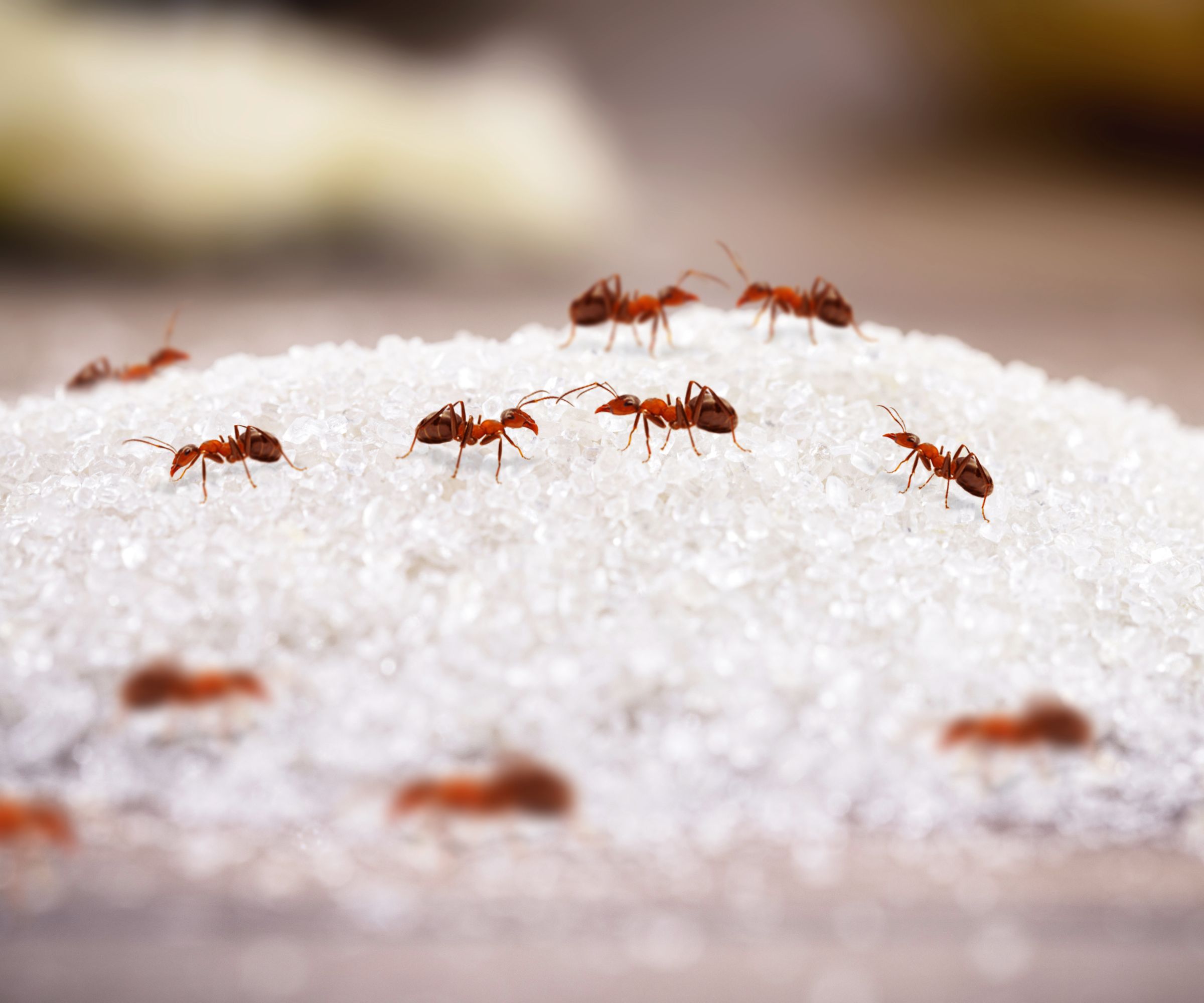
Pesticides and commercial products that eliminate or repel ants
If natural measures prove insufficient, pesticides and commercial formulations can help control ants.
Commercial repellents
Some nontoxic commercial sprays can repel and kill ants. For instance, brands like Raid can be highly effective, though they contain chemical insecticides such as imiprothrin and cypermethrin that should not be inhaled or ingested.
Bait traps
Enclosed bait traps with pesticides can be preferable to sprays for some households. Baits attract ants, which carry toxin-laced food back to their colony, killing other members.
Some baits use boric acid or borax; others contain compounds like hydramethylnon, which can be dangerous to children, pets, and food crops. Read ingredient labels before purchasing ant traps.
When to hire an exterminator
If methods you try don’t work, a professional exterminator can help. Seek a service that uses the least-toxic options and disclose concerns such as children, pets, or respiratory conditions.
Exterminators often advertise “green” or “eco-friendly” services; if you’re worried about chemicals, ask what products they plan to use before hiring.
Frequently asked questions
How do I get rid of ants permanently?
Some long-term natural options include borax-water baits, diatomaceous earth, and treating ant nests with boiling water. If home remedies don’t solve the issue, consult an exterminator for professional guidance.
How do I get rid of ants in my house fast?
Seal entry points, use cornstarch or boiling water to remove or kill large numbers of ants, and clean pheromone trails with soapy water. If rapid control is needed, try bait traps or commercial sprays.
What smell do ants hate?
Ants tend to dislike scents such as:
- black and cayenne pepper
- coffee grounds
- white vinegar
- certain essential oils like peppermint, tea tree, and lemon eucalyptus
Takeaway
Ants are common household intruders and are usually harmless. They can be stubborn, but you can repel or reduce infestations over time using the natural techniques described above. Commercial products are also available to help eliminate or deter ants.
Maintaining cleanliness and sealing entry points will help prevent future infestations.
If nothing else works, professional exterminators can remove ants from your home.

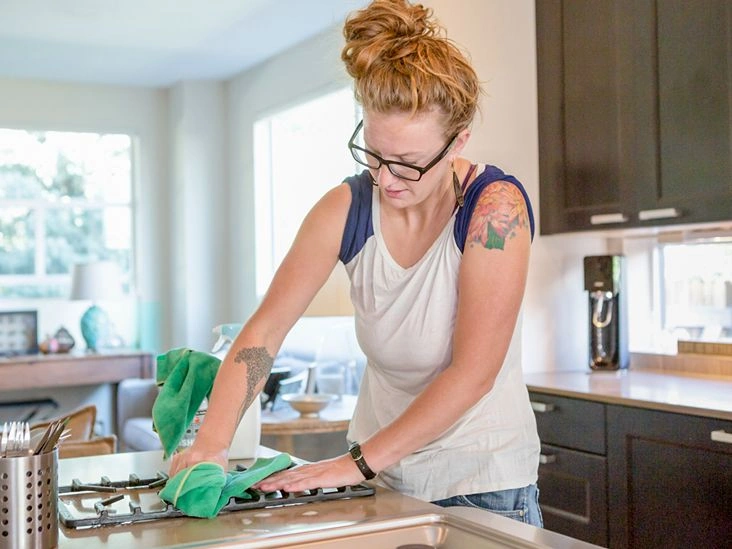



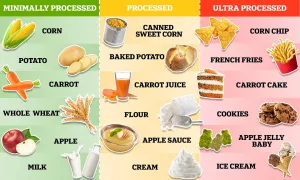


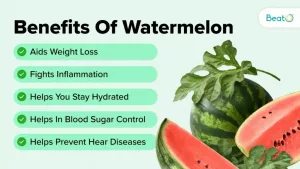

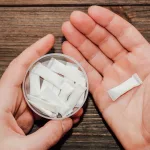

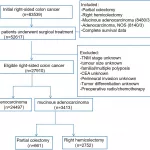







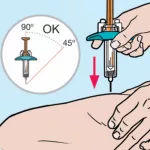

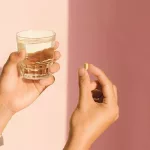

Leave a Reply
You must be logged in to post a comment.